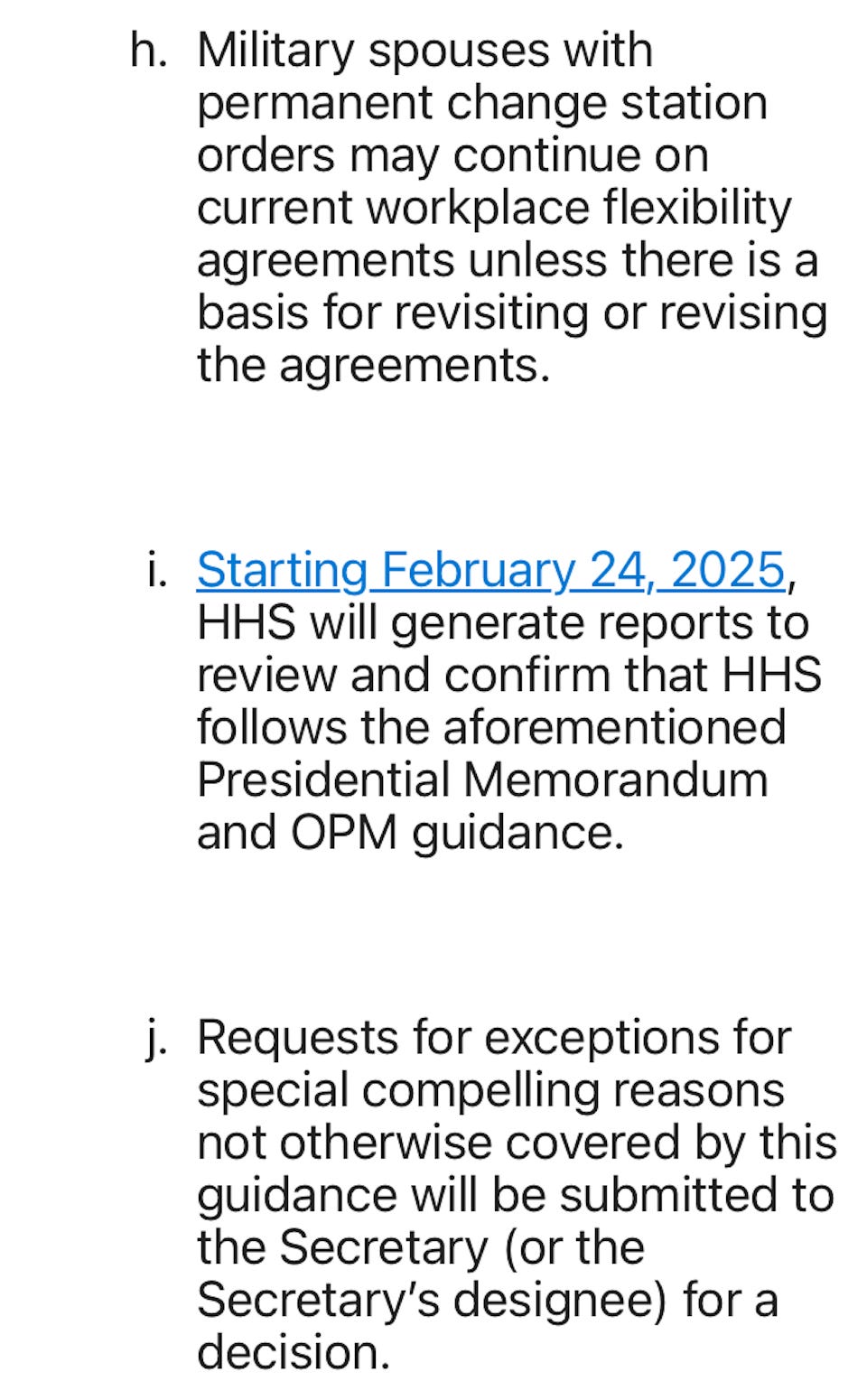Scoop: HHS employees told that remote work is over for most. Rollout begins February 24, Friday email says.
For others, telework will end in March and April, depending in whether employees live within 50 miles of an HHS building. Some exceptions listed. Legal status of union agreements unclear.
We have some news—and I think we may be breaking this here in Inside Medicine this evening.
Inside Medicine obtained an email sent to all HHS employees this afternoon. I’m publishing it below. We’ll have to get more insights and analysis later, but I’ve spoken to enough people at HHS who are familiar with the matter already that I wanted to share what I have with you now. Plus, the administration seems to use Friday evenings to dump bad news, hoping we’ll ignore it. Not us. So…here you go!
But first…if you want to support work like this, please share and support Inside Medicine. Thank you!
Trump administration ends remote work for almost all HHS employees.
On Friday afternoon, the Trump administration sent all HHS personnel an email effectively announcing the end of remote work for most of its employees. A federal employee at the Indian Health Service shared the email with Inside Medicine, and two CDC officials confirmed that employees there had also received it.
The memo fills out details of a plan previously floated by the Trump administration. I’m printing the email in full below.
Highlights:
As in earlier drafts, some employees who live within 50 miles of an HHS facility will have to work in person, starting as soon as February 24. For others, the policy goes into effect March 17. It’s unclear how this will even be possible for agencies that don’t have adequate active office space for these employees.
Those who live outside of 50 miles from an HHS facility will also have to report to an office, starting April 28. What office? Who knows. The email literally says “HHS will provide details as real estate efforts develop.” So, I guess the government wants to save money by getting more real estate. Will they also hire new supervisors for these positions? This does not seem efficient.
The policy applies to union members, somehow, including employees whose collective bargaining agreements (including many at the CDC) explicitly require remote work options and other flexibility.
The memo claims, without justification, that the policy does not violate collective bargaining agreements. It’s unclear where they got that. “They were trying to invalidate some of the collective bargaining agreements,” one source told me. “Now it just seems they plan to ignore them.”
There are some exceptions, including military spouses and those with disabilities or “qualifying medical conditions.” (Sounds like a new level of bureaucracy.)
HHS will have to report on adherence to this policy. (Sounds like another new level of bureaucracy. It bears noting that DOGE and this administration can’t seem to avoid adding layers of bureaucracy while attempting to decrease the size and scope of the federal government, and generally making life difficult for its remaining employees.)
I asked one official about the legality of simply ignoring a collective bargaining agreement. The source did not know, and didn’t think it was legal. “I think this is just trying to drive up deferred resignation acceptance,” the individual told me. The same source also felt that this move was “small potatoes” compared to terminating newer employees and cutting independent contracts (both of which the administration can legally do for almost any reason), before a bigger showdown with Congress over funding in March.
Another official said the administration was trying to “invalidate” the collective bargaining agreements to make this policy work. One would imagine that unions will sue to protect their collective bargaining agreements.
Below is the email, scrubbed of metadata. (Sorry DOGE):
That’s what we know for now. If you have details about any of the unfolding stories we are following, please email me or find me on Signal.
Thanks for reading, sharing, speaking out, and supporting Inside Medicine! Please ask your questions in the comments and if you can’t upgrade due to financial considerations, just email me.












The unions will sue.
Does scrubbing the metadata also remove the spacers they are inserting to be able to track who leaks what?